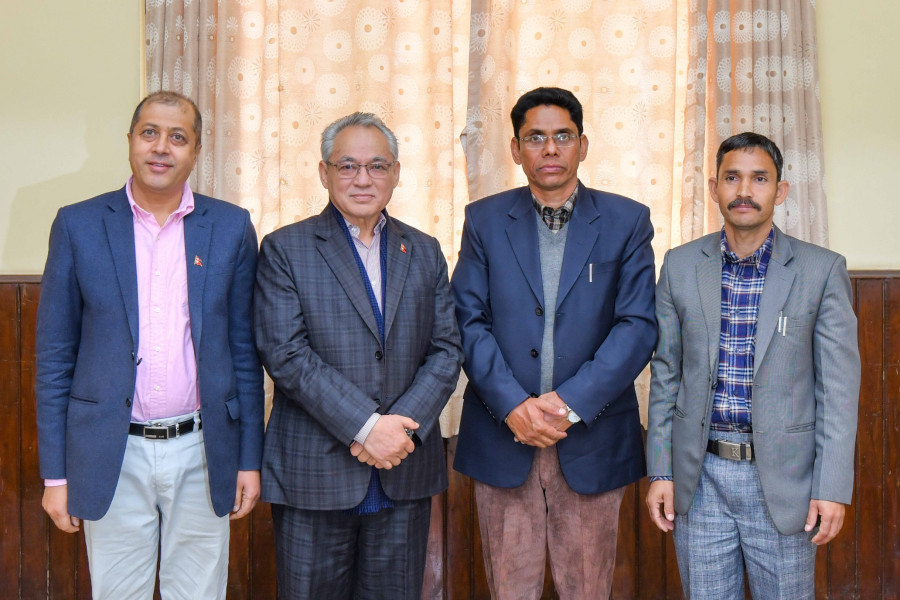Editorial
Hold on to peace
The truce with the Chand-led party is a much-needed flicker of hope for Nepalis, who have been sick of political violence.
The signing of a three-point agreement between the government and the Netra Bikram Chand-led Communist Party of Nepal has brought a new bout of euphoria in Nepali society which was desperately waiting to see an end to yet another iteration of violent politics. As per the deal, the party will seek to address its political issues through dialogue; the government, on its part, will release the party's cadres from jail and drop court cases against them, and lift the ban on the party’s activities. The government is understood to have begun honouring its commitments right after signing the deal.
But it is not yet clear how the government is going to address the party’s political demands like a round-table meeting and scrapping of the parliamentary system. The full details of the agreement are slated to be made public today; Prime Minister KP Sharma Oli and Communist Party of Nepal General Secretary Netra Bikram Chand are expected to speak about the peace deal in the afternoon. What is already clear, though, is that both parties have agreed to use dialogue, rather than violence, as a means to solve outstanding political issues.
For a country that has still been living under the shadow of a decade-long armed conflict, of which Chand was a part, the truce is a much-needed flicker of hope. The agreement was bound to come sooner or later, as the politics of violence has little relevance in the contemporary world, more so in Nepal. In any case, the government had been pretty ruthless in its response to the Chand-led party’s violence, with cadres being arrested every so often and killed once in a while.
After all, Chand’s violent tactics had been an embarrassment to his former comrades in the government who had left violence for parliamentary politics. Chand’s offer of talks, therefore, could have been the result of all-round pressure. Be that as it may, that the Chand-led party has agreed to leave violence behind and engage in peace is welcome. As a party that began a violent insurrection in the name of ‘completing’ an abortive revolution, it deserved a hearing.
Meanwhile, for Prime Minister Oli, bringing Chand to the talks table is a sure shot way to re-establish his legitimacy, which he lost after his dissolution of Parliament and the quashing of his move by the Supreme Court. If the agreement leads to long-term peace and a successful management of the Chand-led insurrection, Oli stands to resuscitate his legitimacy.
In any case, the prime minister is credited with having brought Madhesi activist CK Raut to the talks table and having him tone down his radical views, at least for the time being. Once the peace deal comes to fruition, Oli will earn the dubious distinction of derailing parliamentary democracy and bringing a guerrilla party to democratic politics at the same time.
Most of all, the people wanted the spate of killings to stop right away. The initiation of peaceful dialogue is already half the conflict solved, and the only option for both parties now is to work towards making the agreement a success. The expected success of this agreement is, therefore, crucial as it paves the way for conditions where dialogue and debate are given primacy rather than violence in future conflicts as well.
This pact should carry honesty rather than immediate political gains and optics. Otherwise, it will just set a dangerous precedent of politicisation—and normalisation—of violence as Chand and his comrades will get away with serious charges of cold-blooded murder and bomb blasts only to continue with their violent politics.




 8.79°C Kathmandu
8.79°C Kathmandu














